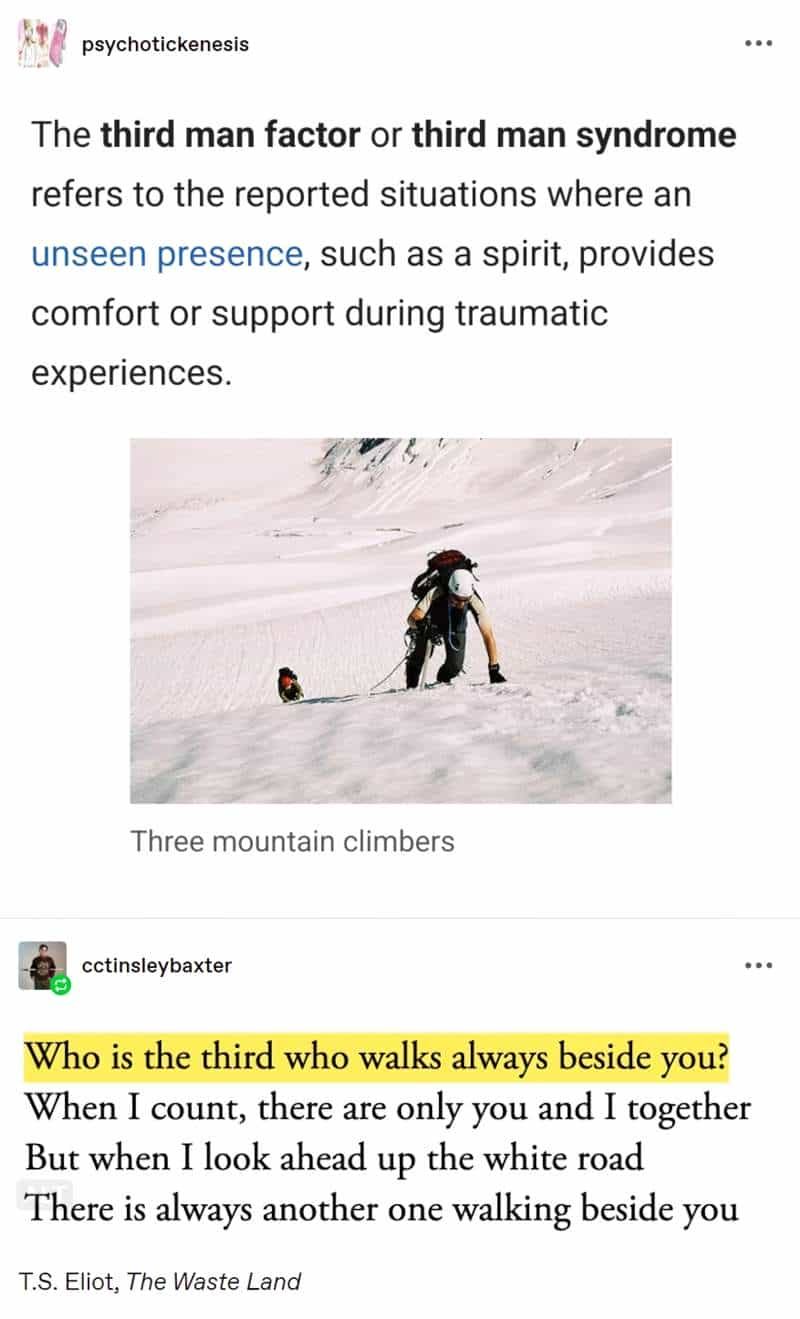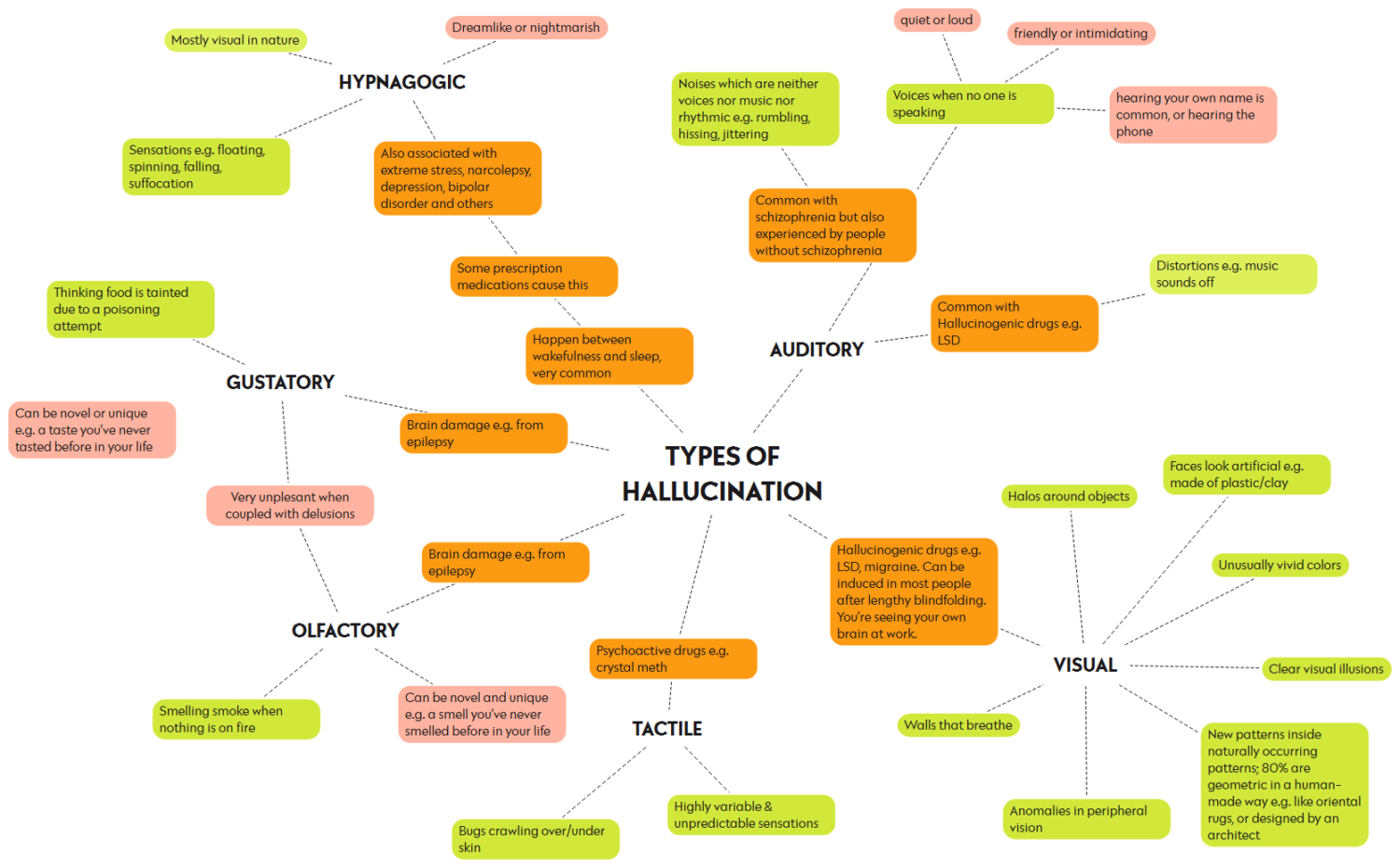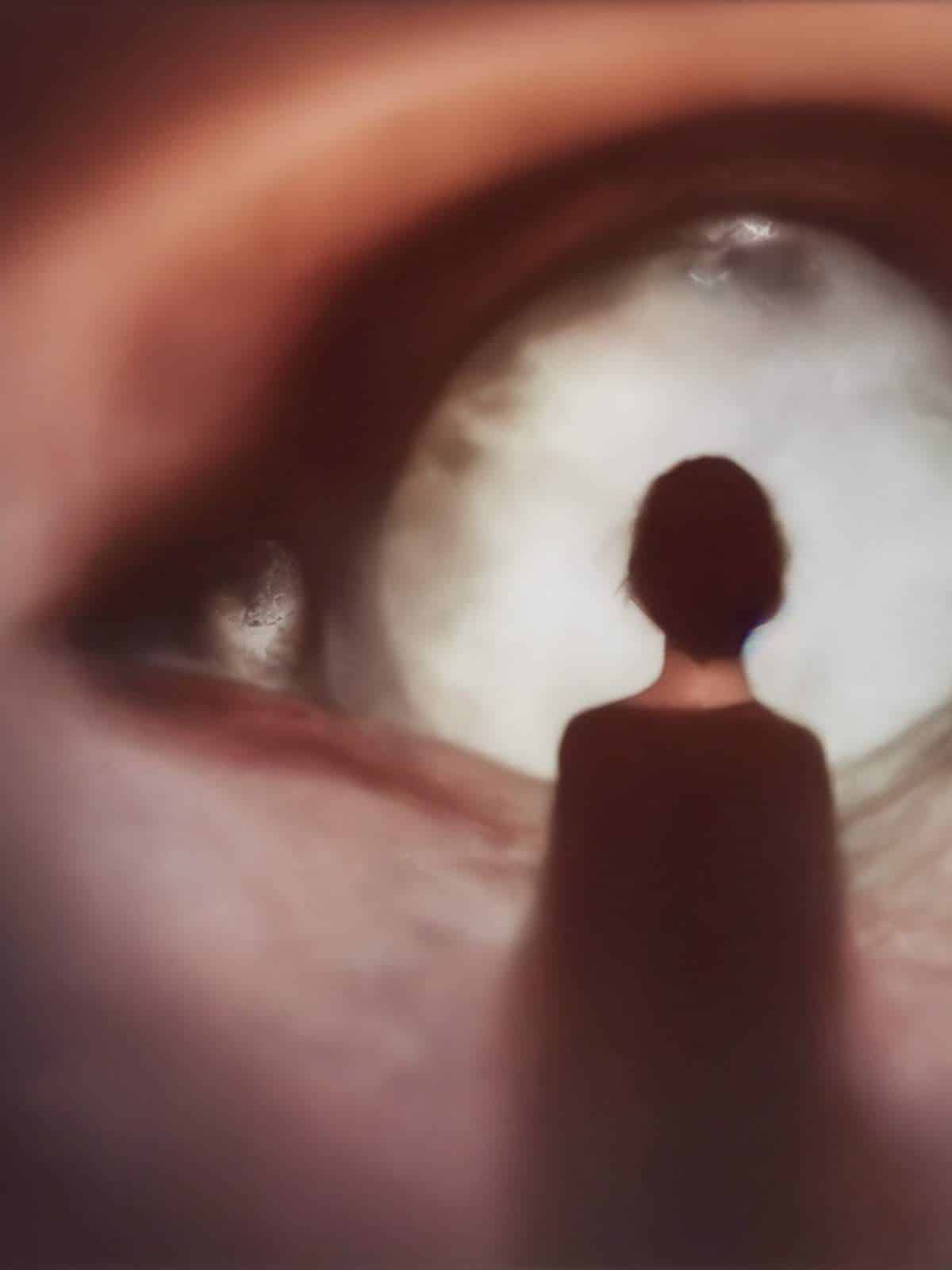Hallucination: perceiving something not present. The sensory experience is not real, but you experience it as real.
This English word was popular in the late 1800s, dropped off during the 20th century and is now back in frequent use.
- Everybody probably hallucinates at some point e.g. between wake and sleep; under extreme stress; grieving for a loved one.
- Hallucinations can be euphoric or highly unpleasant/terrifying
- There are various ways of categorising hallucinations. One way: How they feel to the person experiencing them. Another way: Medically, with a (somewhat arbitrary) division between psychiatric and neurological types.
- Substances can cause hallucinations (both street drugs and prescribed drugs)
- Visual and auditory hallucinations are the most common
- With visual hallucinations, geometric patterns are the most common
- With auditory hallucinations, hearing voices or the phone is very common. Voices will commonly call your name. (The general tone of the voices people hear in their heads is largely attributable to their cultural circumstances.)
- Hallucinations can provide novel experiences you won’t experience any other way e.g. tasting or smelling a brand new taste or smell
- “Hallucinating” is not a mental illness, but is associated with some mental illnesses.
- The difference between hallucinating and delusion: Hallucinations involve seeing, hearing, tasting (etc.) things that aren’t there. Delusions are false beliefs. Deluded people continue to hold those beliefs even when presented with evidence to the contrary.
- Paranoia is a subcategory of delusion i.e. a delusion in which you suspect people of doing you harm/wrong. Paranoid delusions are common in dementia patients who might think their own grandchildren are trying to steal money out of their purse, for instance.

TYPES OF HALLUCINATIONS

WHAT IS THE MEANING OF MENTATION?
Mentation means mental activity. This word is used in medical spheres to refer to any sort of brain activity, set apart from the more deliberate act of ‘thinking’ (which may not feel volitional at all). Mentation includes mental activity that happens when we are not conscious, when we are hallucinating and so on.
An example of mentation in use:
[Sleep paralysis] is relatively common. It’s when you’re half awake, half asleep, and you realize that you can’t move. So it’s a temporary period of paralysis, but it can be associated in a smaller percentage of cases with terrifying visual and auditory hallucinations that cover a very wide range of things. It feels as real as an objective perception of something out there in the real world.
And do we know what causes it?
We do in general terms, yeah. If you go through the kind of a normal night’s sleep, you’ll go through different stages and you come back up and then you go into what’s called REM sleep. And this is the phase of sleep that is typically associated with vivid dreams. And when you’re in this state, the muscles of your body are actually paralyzed, presumably to stop you acting out the action of the dream. In an episode of sleep paralysis, it’s as though your brain wakes up, but your body doesn’t. You can see you still in your bedroom, but you might have all this weird dream mentation and imagery coming through into normal waking consciousness. So you got a kind of hybrid state, and it can be, as we’ve seen, absolutely terrifying.
The “Talking To Ghosts” episode of Unexplainable podcast (Vox), 26 October 2022, Chris French psychologist

HALLUCINATING: FURTHER READING
- Oliver Sacks On Hallucinations from Time Health and Family
- Caring for a person experiencing hallucinations, a PDF from the Queensland Govt
- “Paranoia“, a short story by Shirley Jackson
- There are many ways to be wrong about reality e.g. (logical) fallacies
- The “Talking To Ghosts” episode of Unexplainable podcast (Vox), 26 October 2022 is all about hallucinating (as well as about how people who believe in ghosts tend to hallucinate ghosts).


